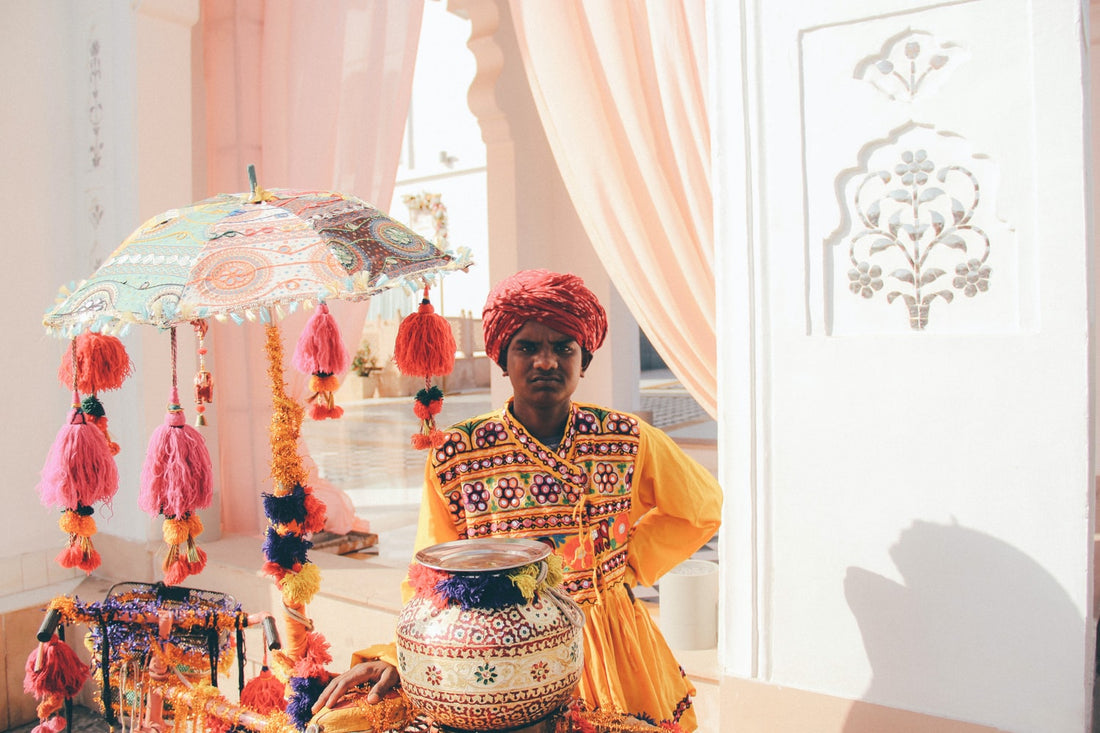Ethical sourcing is at the heart of everything that we do at Mojave Park. Each item in our store is ethically sourced after painstaking research. We want to ensure that the artisans whose work we showcase are given the love and respect they deserve.

There’s been a lot of talk about sustainability in recent times with companies frequently announcing efforts to follow stronger ethical sourcing practices. This is largely thanks to customers who are becoming increasingly environmentally aware and are raising their voice for brands to engage in ethical sourcing. But why this demand for ethically sourced products? And can it drive real change?
To understand this, it’s important to examine what ethical sourcing entails. In a nutshell, it’s the process of procuring products in a responsible and sustainable way. A way that guarantees worker safety and welfare is taken care of and the cost to the environment is minimal.
Swept under the Rug
Handmade Indian rugs are a sought-after product, gracing spaces with their beauty and intricacy. However, a closer look often reveals a carpet industry driven by slave labour, particularly child labour. In 2014, FXB Center for Health and Human Rights released a report of the same in India’s handmade carpet sector. It documented more than 3,000 cases of labour exploitation and even human trafficking in carpet production sites. These same carpets were sold in many major US retail chains.
Troubles in the Metalware Industry
The metalware sector is another space that sees problems. According to a paper published in the International Journal of Management, IT and Engineering, artisans often find themselves at the short end of the stick, from a lack of proper workspace to low upfront capital and long working hours. For instance, the brass hub of Moradabad in India’s Uttar Pradesh has skilled engravers with little access
to financing solutions, often depending on payment of previous goods sold. However, the middlemen take home a chunk of the profits while the artisans live in poverty.
Ethical Sourcing in the Supply Chain
With consumers becoming more aware of ethical sourcing and studies uncovering widespread cases of labour and environmental violations, businesses need to be proactive in maintaining risk-free supply chains. The benefits are enormous too. Top among them are boosting brand credibility and increasing market share by aligning products with customers who prize fair trade practices. For the
consumer, the benefits include buying products with a clear conscience, knowing that they’re contributing to artisans’ wellbeing, and maintaining a smaller carbon footprint.
Our Ethical Journey
We’re trying to make a change.

The carpet industry is one of several that we at Mojave Park are deeply invested in, especially since hand-knotted Rajasthani rugs are among our selection of homeware. We firmly believe in fair trade practices, sustainability and ethical sourcing, which is why we make all efforts to procure products directly from the artisans themselves. / from manufacturers who strictly adhere to labour laws. This
goes for our cactus silk pillows and items in our furniture catalogue including our hand-stitched leather ottomans.

Our handmade metalware collection is also sourced ethically - all our products are, for that matter. The factory that produces our metalware is based in Delhi and features modern style ventilation and good lighting, which makes a huge difference to the safety, comfort, and productivity and the artisans.
Each year, we travel to the countries we source our items from in search of artisanal products to add to our selection of homeware. As we do this, we make sure to associate only with manufacturers we know for a fact follows ethical sourcing and fair trade practices. In this way, we hope to drive a bigger
shift towards encouraging consumers to purchase ethically sourced products.

Each of us has the power to influence the market. Knowing what we know about the current state of affairs, it’s time to change the status quo and move towards ethical sourcing and sustainability.

